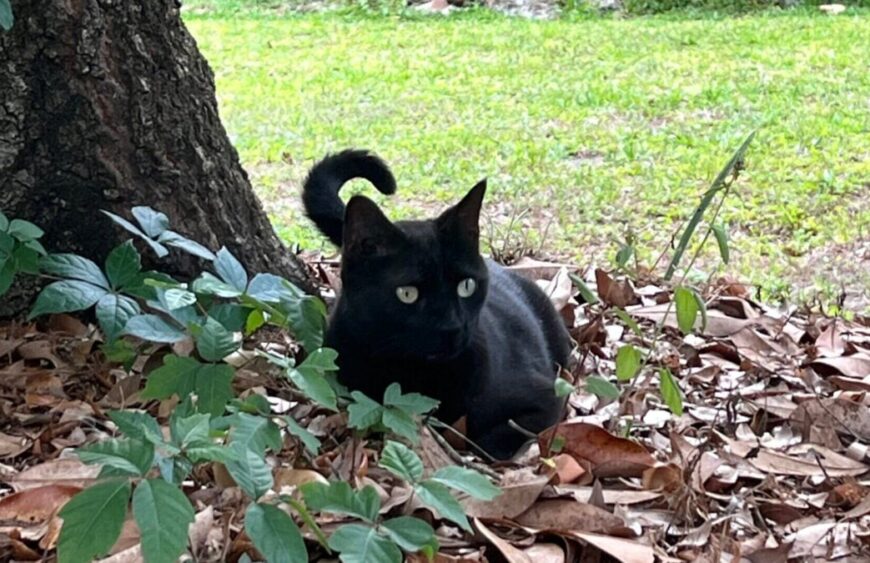Florida Cat Named Pepper Brings Home Never-Before-Seen Virus—for the Second Time

Last year, Pepper, a pet cat who roams the backyards of Gainesville, Florida, helped a scientist discover a new viral strain. Now, the furry feline is back at it again.
In a new study, scientists have once again discovered an exotic virus infecting a dead rodent that had been caught by Pepper. This time around, Pepper’s furry hunting trophy helped researchers pinpoint an unidentified strain of orthoreovirus, a type of virus that infects humans and other mammals. The findings, and the virus’s complete genome, are published in the journal Microbiology Letters.
John Lednicky, Pepper’s owner and the lead author of the study, is a microbiologist at the University of Florida and hunts viruses much like Pepper hunts rodents. It was Lednicky who brought Pepper’s fresh catch into the lab for testing.
His analysis revealed that the rodent, an Everglades short-tailed shew, carried a previously unidentified strain of orthoreovirus. These types of viruses can infect humans and other mammals, but scientists still don’t know much about their effects in humans. There have been a few rare cases of encephalitis, meningitis, and gastroenteritis linked to the virus in children, however. The new viral strain is officially known as “Gainesville shrew mammalian orthoreovirus type 3 strain UF-1.”
Orthoreoviruses mutate quickly. Much like the influenza virus, two different types of orthoreovirus can infect a single host cell. This means that the two viral strains blend their genomes within the cell, essentially creating a new virus.
“The bottom line is we need to pay attention to orthoreoviruses, and know how to rapidly detect them,” Lednicky said in a statement.
Pepper’s last contribution to science was in May 2021, when he brought home a common cotton mouse carrying a type of jeilongvirus never-before-seen in the U.S. Unlike orthoreoviruses, jeilongvirus infects reptiles, fish, and birds in addition to mammals. It can also occasionally cause serious illness in humans. That study was published last year.
Since then, Lednicky has also been hard at work identifying other novel viruses. He adds that it’s not all too surprising to find a new viral strain, since viruses mutate quickly. “I’m not the first one to say this, but essentially, if you look, you’ll find, and that’s why we keep finding all these new viruses,” Lednicky said in a statement.
Next, the researchers plan to continue studying the exotic virus to understand if it poses a threat to humans and pets. But the virus posed no threat to Pepper, at least, who has shown no signs of illness and is out conducting fieldwork once again.
“This was an opportunistic study,” Lednicky said in a statement. “If you come across a dead animal, why not test it instead of just burying it? There is a lot of information that can be gained.”
Trending Products






